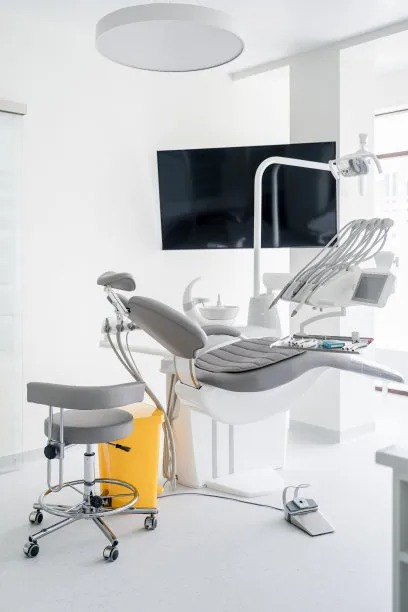Summary: Undergoing dental filling procedures can be a straightforward experience, but ensuring safety and preparedness is crucial for optimal outcomes. This article delves into essential safety tips and precautions to consider before your dental procedure. By understanding the importance of effective communication with your dentist, being aware of medical history, preparing mentally and physically, and knowing post-procedure care, patients can significantly minimize anxiety and ensure a successful filling process. These proactive steps will help you achieve a smoother dental visit, leading to better health and comfort.
1. Communicate Effectively with Your Dentist

The first step in ensuring a safe dental filling procedure is establishing clear communication with your dentist. Before even sitting in the dental chair, be sure to discuss any dental anxieties or fears. Honest dialogue sets a positive tone and allows the dentist to adjust their approach to make you more comfortable.
Moreover, share your complete medical history, including any existing conditions, allergies, and medications you are currently taking. This information is vital for your dentist, as it enables them to take necessary precautions during the procedure. For example, if you are allergic to certain anesthetics, alternative solutions can be identified.
Finally, dont hesitate to ask questions about the procedure you are about to undergo. Understanding what to expect can significantly ease your anxiety. Inquire about the materials used, the duration of the procedure, and any potential risks involved. Knowledge is power, and being informed can help improve your overall experience.
2. Assess Your Medical History Thoroughly
Before undergoing dental filling procedures, it鈥檚 essential to evaluate your medical history with a keen eye. Various medical conditions can affect dental procedures, including heart disease, diabetes, or bleeding disorders. Knowing these factors allows for customized care and enhanced safety.
Additionally, ensure that your vaccinations, especially for conditions like hepatitis, are up to date. This precaution minimizes the risk of infection, promoting a safer environment for both patient and dental staff. Your dentist may also require specific tests or assessments based on your medical history.
Anyone who has had previous adverse reactions to dental procedures should communicate these details clearly. Previous complications can significantly influence how your dentist approaches your treatment, allowing them to apply techniques that minimize the risk of recurrence and set the stage for a more comfortable experience.
3. Prepare Mentally and Physically for Your Visit
The mental aspect of preparing for a dental filling is often overlooked but is just as crucial as physical preparation. Develop calming techniques to manage anxiety, such as deep breathing exercises or visualization. These methods can help you achieve a relaxed state before you arrive at the dentist鈥檚 office.
Physical preparation also includes ensuring that you eat a light meal prior to your appointment. A comfortable body can ease the mind, making the experience more pleasant. However, avoid consuming food that is too hot or cold, as this does not aid in relaxation.
Moreover, consider bringing a friend or family member for emotional support. Having a trusted companion with you can provide comfort and encouragement, making the appointment feel less intimidating. Pair these mental and physical strategies for comprehensive preparation before your dental visit.
4. Understand Post-Procedure Care Instructions
Another crucial aspect of safety involves understanding and following post-procedure care instructions. Your dentist will provide guidance on what to expect immediately after getting a filling, including sensations you may feel. Awareness of potential discomfort can help alleviate unnecessary worry.
Proper aftercare is vital, including dietary restrictions. You may need to avoid certain foods, especially those that are hard or sticky, for at least 24 hours post-filling. Following these recommendations helps prevent damage to the filling and supports a smooth healing process.
Lastly, be observant of any unusual symptoms following the procedure, such as prolonged pain or discomfort. If these occur, don鈥檛 hesitate to contact your dentist for advice. Being proactive about post-procedure monitoring ensures your recovery is quick and effective, allowing for peace of mind during recovery.
Summary:
Ensuring a safe and successful dental filling procedure requires a blend of effective communication, understanding your medical history, mental and physical preparation, and following post-care instructions. By taking these steps, you set the foundation for a smooth and stress-free dental visit that leads to improved oral health and well-being.
This article is compiled by Vickong Dental and the content is for reference only
Vickong Dental
Vickong Dental is a large medical group established in Hong Kong in 2008 by professors from well-known medical universities in Guangdong and Hong Kong, as well as medical doctors from key national '985' universities (including Master's supervisors and senior professors). The chain of branches brings together expert dentists with PhDs and Master's degrees from Hong Kong and Mainland China, committed to providing high-quality dental treatment.
"Vickong Dental Practices the University Motto of 'Healing and Serving Society,' with a Stable Operation for Sixteen Years. It Has Been honored with Hong Kong Enterprise Leaders's Choice,' and is a Global Trusted Implant Center for the Nobel Implant System. Recommended by Hong Kong Metro Broadcast and Guangdong Television, it Serves Customers from Over Thirty Countries and Regions, Gaining the Trust and Favor of Citizens from the Guangdong-Hong Kong-Macau Greater Bay Area and Surrounding Cities.

Thousands of customers' unanimous praise
The most recognized and highly recommended dental service by customers in the Guangdong-Hong Kong-Macau Greater Bay Area
We Ensure You Receive Detailed Care and Attention Here
Hong Kong standards, Shenzhen prices, Your Trusted English-speaking dentists

Vickong Dental Medical-Grade Instrument Disinfection Process
Vickong Dental Medical-Grade Instrument Disinfection Process

Vickong Dental Chain: A Warm and Comfortable Environment for Treatment






Appointment Hours

Q&A
Why choose Vickong Dental?
Vickong Dental practices the university motto 「Medicine to Benefit Society」, with each branch bringing together highly qualified dentists with doctoral and master’s degrees from Hong Kong and the Mainland, and has maintained seventeen years of steady operation。Recipient of 「2024 Hong Kong Enterprise Leaders Brand」, 「2025 Hong Kong Enterprise Leaders Brand」, a Nobel Biocare Global Trusted Implant Center, and a brand recommended by Metro Radio Hong Kong and Guangdong TV。
To date, we have served customers from more than thirty countries and regions,earning exceptionally high word-of-mouth recognition and trusted recommendations from residents across the Guangdong-Hong Kong-Macao Greater Bay Area and surrounding cities
We have eight major branches in Zhuhai、Shenzhen,and a consultation and service assurance center in Hong Kong,so you can book a free consultation at any time for any questions,which is very reassuring.
If I do not accept the quotation after the CT scan, will I be charged??
No! As long as the actual treatment has not started, you will not be charged any fees.
Will there be any additional charges during the treatment process?
No, there won’t be any additional charges. Before treatment begins, we will clearly explain the treatment plan and its corresponding fees. Only after the patient agrees and signs the consent form will we proceed with the dental service.
Can I pay in Hong Kong dollars?
Yes. Vickong Dental accepts payment in Hong Kong dollars. The amount will be converted based on the exchange rate of the day, and the applicable rate will be clearly communicated to you in advance.
Can I reschedule my appointment at any time?
Yes. Please contact us via **WeChat** or **WhatsApp** as early as possible, providing your original appointment time and details, along with your preferred new date and time slot for rescheduling.













